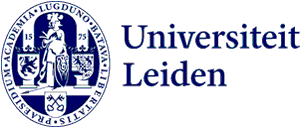
What does it mean to be Ukrainian?
It is almost two and a half years since Russia invaded Ukraine, but the conflict between the two countries has been going on for much longer. Central to it is the question of what it means to be Ukrainian. Guest researcher Viktoriia Ryhovanova teaches a course on the subject. Last academic year, the second edition took place.
The question ‘What does it mean to be Ukrainian?’ has several layers, agrees Hansika Baldwa, one of the students who took the course. 'The emphasis of the teaching material centres on three different issues. The interaction between geopolitics and the history of both Ukraine and Russia is covered, for instance, but differences in culture are also addressed, as well as differences in language.'
Narrative
'The course takes an interdisciplinary approach, where I want to emphasise the idea of “nation is narration”,' Ryhovanova explains. ‘This approach argues that storytelling and narrative construction are instrumental in constructing a national identity.' For example, Putin claims that Ukraine and Russia are not unique, but belong together. 'Lessons also focus on this,' Ryhovanova says. 'The students learn where this myth comes from and how it works.'
The first assignment of the course therefore revolves around the disinformation and propaganda that emerge during the conflict. But it is the second assignment the students are mostly working on, and which they also enjoy the most, Baldwa explains. 'For our final assignment, we had to make posters in groups about an object or event that was culturally significant for Ukraine. Other than that, we were given free rein. Some groups used the assignment to focus on Ukrainian music. The poster I made was about the Trident (the Ukrainian weapon, ed.), and what it has meant to the Ukrainian people over the years. We then engaged in extensive discussions about the posters, which really starts to bring the culture to life'.
Change
Although this was only the second edition of the course, it did change, Ryhovanova says. 'The first edition was driven by emotion, both for me and the students. There was a mindset of 'What can we do?' The focus was on the conflict itself and the course was taught from a war perspective. This year focused more on the country's culture, language and traditions. The emphasis changed and so did the motivation behind the lessons'.
